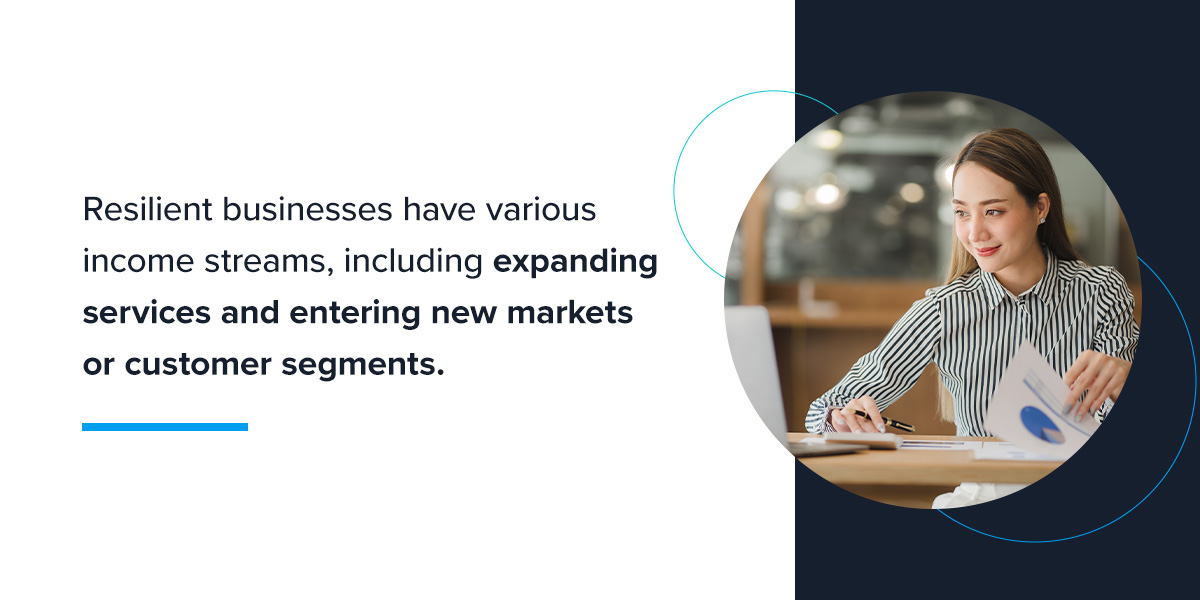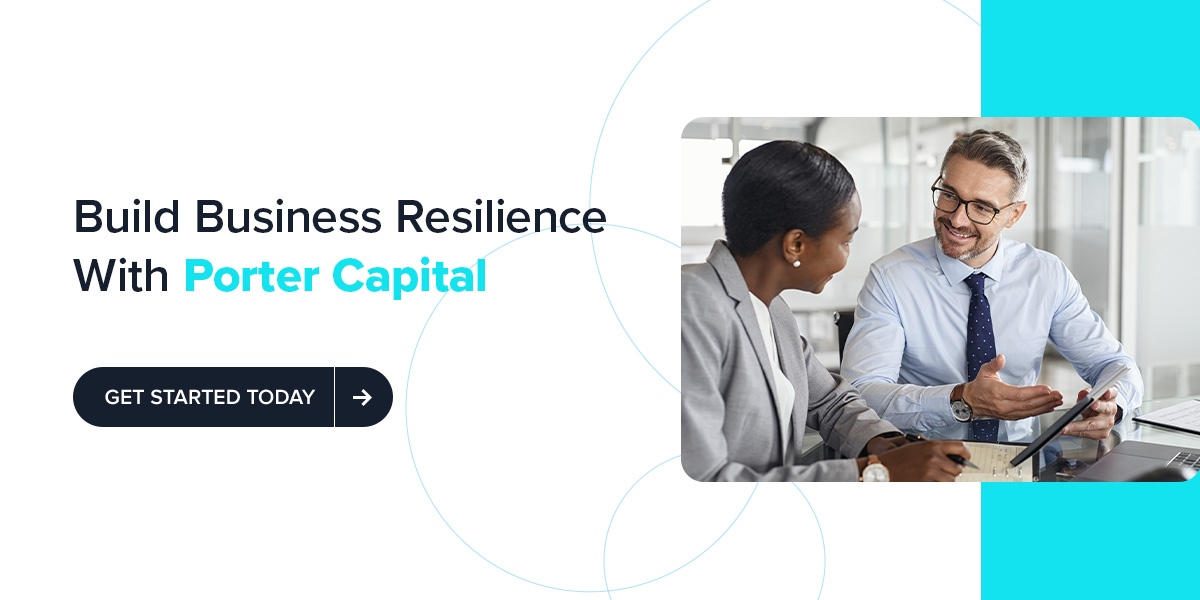Table of Contents - Quick Links
As the world changes, businesses must respond quickly and effectively to keep up with societal changes, customer needs and technological disruption. Resiliency applies to every aspect of a business — product development, supply chain, financial capital gains and employee development. It requires a holistic approach to keep up with the changes and avoid significant disruptions.
Keep reading to learn more about how to build a resilient business model in the service industry.
What Is Business Resiliency?
Business resiliency is an organization’s ability to adapt to changing circumstances while maintaining operations. A resilient business can minimize and manage risk, even in difficult times.
Resilient organizations understand the need to preserve business processes and workflows to survive unexpected events. The human element is the most challenging preparation businesses need to make. Employees should know how to respond in difficult circumstances.
It’s becoming increasingly essential for businesses to maintain flexibility because the business environment is unpredictable and ever-changing. Several factors influence the business landscape, such as the interconnectedness of the global economy, climate change and technology. Organizations must know how to respond to these factors while maintaining their operations.
Critical Elements of a Business Resilience Strategy
Business longevity is no guarantee in this changing world. Let’s look at some key elements that form the foundation of resilience.
- Diversify responses: In stressful times, companies need multiple ways to respond to prevent a catastrophic failure. Having employees from diverse backgrounds creates an environment that encourages different ways of doing things and enables you to find creative solutions to business problems.
- Design a modular organization: A modular approach to your organizational design allows individual parts of the business to fail without the whole company collapsing. The secret is having separate parts while still maintaining a tightly integrated company. A modular organization consists of multiple small departments, letting you quickly reorganize when challenges arise.
- Create adaptable processes: Adaptable businesses focus on flexibility and learning rather than maintaining stability and avoiding changes.
- Maintain prudence: Prudent company leaders know the future is uncertain. You can safeguard your business by developing contingency plans and stress tests for likely risks that will have significant consequences for your organization. You can use various techniques to develop these plans, such as war games, scenario planning, monitoring early warning signs and analyzing your system vulnerabilities.
- Embed organization goals: Your organization’s systems must align with the company’s goals and activities. To ensure your business’ long-term success, you must detail your purpose and response to societal needs and ingrain these in every aspect of your organization.
Strategies for a Business Resilience Plan
Your business must respond to crises and opportunities as they arise. Let’s explore some tactics you can use to build a resilient business model.
- Diversify revenue streams: Having a single revenue source can leave your business vulnerable. Resilient businesses have various income streams, including expanding services and entering new markets or customer segments. You can also develop complementary services such as subscriptions.

- Embrace technological innovation: Technology can help your business adapt and continue operations in times of change. Solutions that enable remote work and online service delivery ensure continuity beyond a physical location. Data analytics can let you make informed decisions in the face of challenges. Stay updated on industry-related technology to stay ahead of your competitors.
- Practice flexible supply chain management: Resilient businesses can anticipate changes in the supply chain and develop strategies to address them. You can mitigate supply chain disruptions by sourcing from multiple suppliers, so you don’t depend on a single source. Technology can also let you monitor your supply chain in real time.
- Adopt financial prudence: Managing your finances well is essential for maintaining resilience. Some elements of financial prudence are maintaining a healthy cash reserve to cover expenses and unforeseen events, effectively managing debt and liabilities, regularly reviewing budgets and adjusting where necessary.
- Focus on customer experience: Businesses should know their customers well to drive brand loyalty and long-term profits. While consistency is essential to maintain brand image, your leadership must understand consumers’ changing needs and adapt accordingly. Reimagining customers’ experience and learning their behavior will keep your business agile, ensuring you solve problems and cultivate loyalty.
- Reshape workplace culture: Employees must resonate with your organizational purpose. A weak company culture leaves workers vulnerable to ethical concerns and can diminish your company’s overall brand. There is less collaboration in organizations that lack a strong culture, so they lose agility and can’t innovate. A strong company culture can withstand significant disruptions. It enables you to stay true to your values even as circumstances and priorities shift.
- Refresh your leadership: Employees look to leaders for direction when organizations undergo change. Leaders should invest in employee development, identifying their strengths and determining how best to apply them. They need to rededicate themselves to the core values that guide their decision-making.
- Develop your workforce: Remote working, health concerns and child care needs are some factors that impact an organization’s workforce. These variables also present opportunities for business leaders to reimagine the workforce and create an environment that prioritizes and supports employees to inspire high performance. A resilient organization must adapt to its employees’ changing needs.
Build Business Resilience With Porter Capital
Resilient organizations can adapt quickly to change and unforeseen circumstances. Business resilience is essential for longevity, especially in our unpredictable world. Businesses must build a model of resilience that includes strategies such as modular organization, adaptable processes and embedding organizational goals into systems. Financial prudence is critical for business resilience — maintaining a healthy cash flow and having cash in reserve can ensure your business survives significant disruptions.
At Porter Capital, we provide businesses with alternative financing solutions to keep operating and growing as changes occur. Contact us today to learn more!




